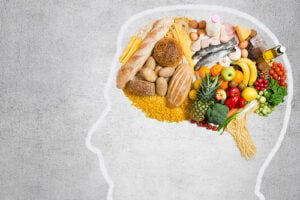Ai-Ling Lin, and her colleagues at the University of Kentucky Sanders-Brown Center on Aging have published an important study demonstrating the effects of the Ketogenic Diet on cognitive health in the lab.
Published in Scientific Reports, the study demonstrated that neurovascular function improved in mice who followed a Ketogenic Diet regimen.
Diet Enhances Neurovascular Integrity
“Neurovascular integrity, including cerebral blood flow and blood-brain barrier function, plays a major role in cognitive ability,” Lin said. “Recent science has suggested that neurovascular integrity might be regulated by the bacteria in the gut, so we set out to see whether the Ketogenic Diet enhanced brain vascular function and reduced neurodegeneration risk in young healthy mice.”
Lin et al considered The Ketogenic Diet — characterized by high levels of fat and low levels of carbohydrates — a good candidate for the study, as it has previously shown positive effects for patients with other neurological disorders, including epilepsy, Parkinson’s disease, and autism.
Ketogenic Diet or Regular Diet?
Two groups of nine mice, aged 12-14 weeks, were given either the Ketogenic Diet (KD) or a regular diet. After 16 weeks, Lin et al saw that the KD mice had significant increases in cerebral blood flow, improved balance in the microbiome in the gut, lower blood glucose levels and body weight, and a beneficial increase in the process that clears amyloid-beta from the brain — a hallmark of Alzheimer’s disease.
“While diet modifications, the Ketogenic Diet in particular, has demonstrated effectiveness in treating certain diseases, we chose to test healthy young mice using diet as a potential preventative measure,” Lin said. “We were delighted to see that we might indeed be able to use diet to mitigate risk for Alzheimer’s disease.”
According to Lin, the beneficial effects seen from the Ketogenic Diet are potentially due to the inhibition of a nutrient sensor called mTOR (mechanistic target of rapamycin), which has shown to affect lifespan extension and health promotion. In addition to the Ketogenic Diet, Lin said, mTOR can also be inhibited by simple caloric restriction.
SOURCE:












aa